Search Images
Browse Content (p. 1568)
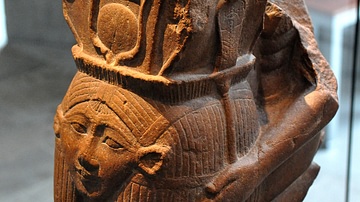
Image
Statue of Rekhmire
This partially damaged quartzite statue depicts the royal scribe Rekhmire. He is kneeling and holding the symbol of the goddess Hathor. From Qift, modern-day Egypt. New Kingdom, 18th Dynasty circa 1400 BCE. (State Museum of Egyptian Art...
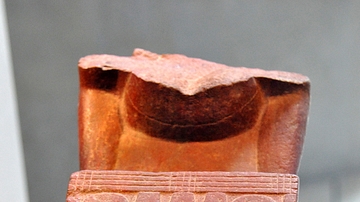
Image
Statue of the Military Official Luna
The lower half of this quartzite statue has survived. It depicts the high-ranking military official Luna, who is kneeling and holding an offering table. From Memphis, Heliopolis, modern-day Egypt. New Kingdom, 18th Dynasty, circa 1380 BCE...
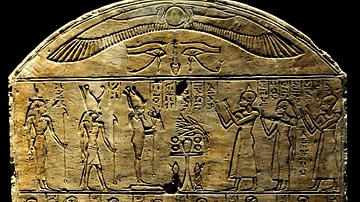
Image
Stela of Padipakhered
Limestone stela of Padipakhered, a priest of the Ka. From Abydos, modern-day Egypt. Saite period, 26th Dynasty, 580-530 BCE. (State Museum of Egyptian Art, Munich, Germany).
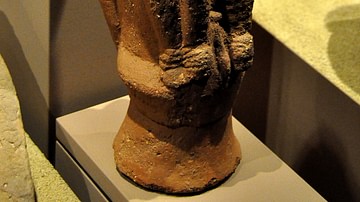
Image
Cat Statue from the Nok Culture
A human-headed cat statue from modern-day Nigeria, Nok culture, 500 BCE to 200 CE.
State Museum of Egyptian Art, Munich.
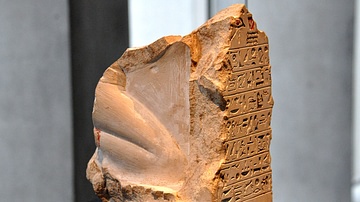
Image
Part of a Stelophosphorus Statue
The lower half of an unknown kneeling person has survived. The figure holds a stelophosphorus stela. From modern-day Egypt. New Kingdom, 18th Dynasty circa 1400 BCE. (State Museum of Egyptian Art, Munich, Germany).
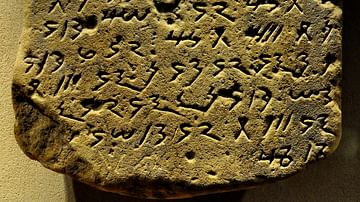
Image
Cursive Block from Meroe
Sandstone block with cursive Meroitic inscriptions. From Meroe, modern-day northern Sudan. 1st century CE. (State Museum of Egyptian Art, Munich, Germany).

Image
Statue of Amun Bakenkhonsu's High Priest
This block limestone statue depicts the high priest of Amun Bakenkhonsu. The statue dates back to the 18th Dynasty of the New Kingdom (1320 BCE) and then it was re-used during the 19th Dynasty (1220 BCE). From Karnak, Thebes, modern-day Egypt...
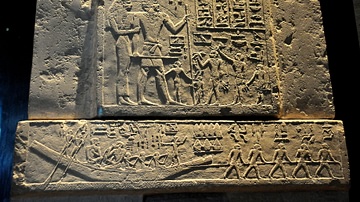
Image
False-Door Stela of Meni
Limestone fragments of the false-door stela of the tomb of Meni. From Giza, modern-day Egypt. Old Kingdom, 6th Dynasty, circa 2200 BCE. (State Museum of Egyptian Art, Munich, Germany).
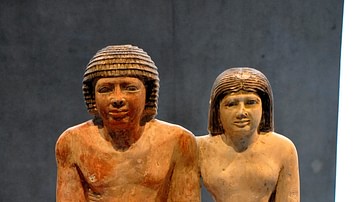
Image
Sabu's Family Group Statue
In this limestone statue, Sabu and his wife Meritites appear seated. The wife holds her husband at the lower chest. Only the lower legs of their son Iseb appear between their legs. From modern-day Egypt. Old Kingdom, 5th Dynasty, circa 2400...
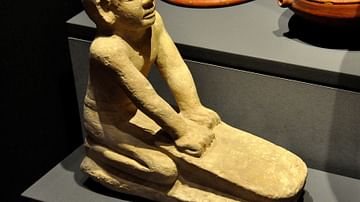
Image
Statue of an Ancient Egyptian Servant
Limestone statue of an Egyptian servant grinding flour. From modern-day Egypt. Old Kingdom, 6th Dynasty, 2250 BCE. (State Museum of Egyptian Art, Munich, Germany).